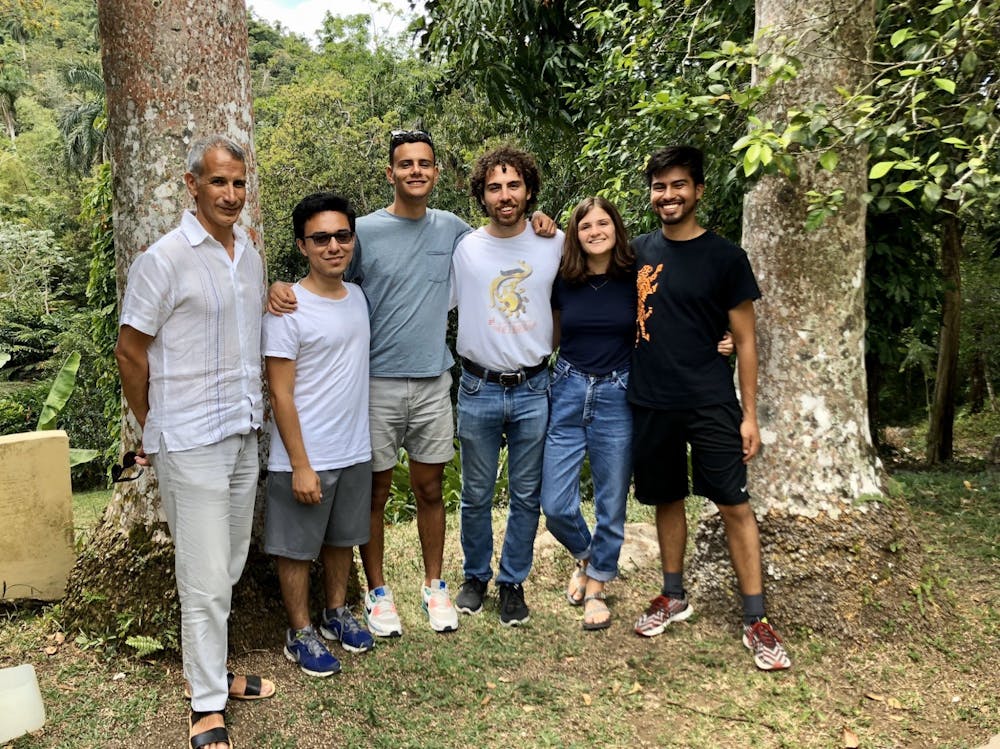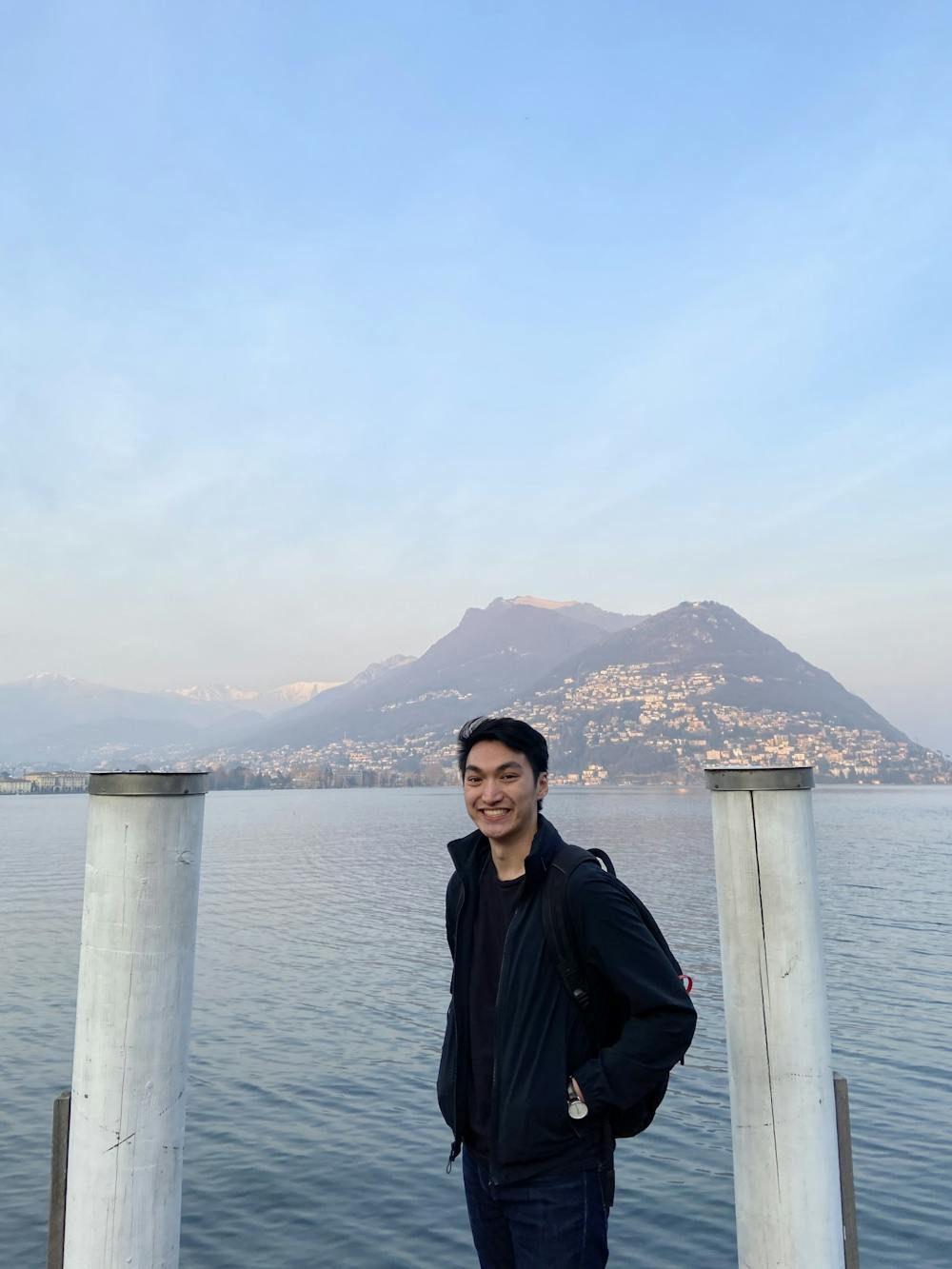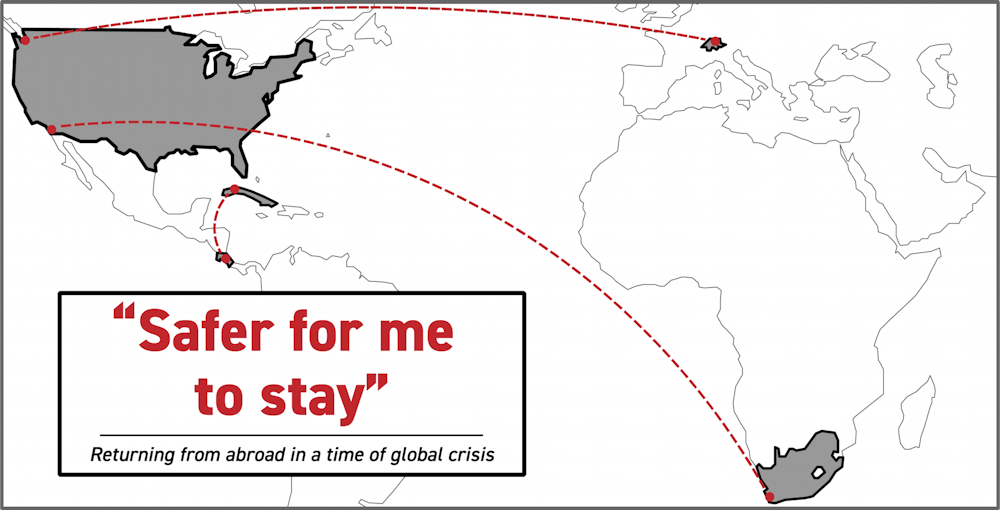On March 12, Alonso Perez-Putnam ’21 woke up to learn that COVID-19 had reached Cuba.
“At that point,” he said, “I was like ‘Okay, we’re all gonna be out of here like, now,’ so I actually cut class that day to go to the beach.”
Perez-Putnam was one of six students participating in Princeton in Cuba, a spring semester study-abroad program directed by Rubén Gallo, the Walter S. Carpenter, Jr., Professor in Language, Literature, and Civilization of Spain. Gallo, for one, didn’t share Perez-Putnam’s certainty of the group’s eventual eviction.
“[Gallo said] Cuba is doing a much better job than the United States is, so there’s no reason to think you guys should go home,” recalled Perez-Putnam. “Cuba has its problems, but it’s really good at disease control.”
At the time, Cuba had only recorded four cases of COVID-19. In contrast, the United States was grappling with thousands.
“In terms of dealing with this shit,” said Perez-Putnam, “the U.S. is, like, middle-of-the-road to bad. A ton of other countries are doing a much better job [...] and are therefore better places to be right now.”

Professor Gallo, Perez-Putnam, and several other Princeton in Cuba students.
Photo courtesy of Alonso Perez-Putnam ’21
He might have been right. Regardless, two days later, citing “significantly increased uncertainty surrounding world travel,” the University mandated all students studying abroad return to their permanent residences.

A dual citizen of the United States and Costa Rica, Perez-Putnam found himself facing not only a dream semester cut short, but also a dilemma: what home meant, and what it meant to return there.
He could fly to Pennsylvania — a state with over 930 COVID-19 cases, as of March 24 — to be with his mother. But that would mean navigating congested airports and a six-hour international flight. It would mean putting his immunocompromised stepfather, who’s in his sixties, at risk. It would mean forcing his mother out of the house, where she was quarantined, to pick him up from the terminal.
In short: his mother, he said, “really didn’t want” him to go back.
So Perez-Putnam took the only other option available to him. He flew to Costa Rica — which has recorded over 150 cases — to live with his dad, who’s also over 60 years old.

“Really, the best thing for everyone in the family would have been for me to stay put,” said Perez-Putnam. “But Princeton doesn’t see it that way.”
Princeton students studying abroad around the world shared Perez-Putnam’s unease. Like him, they found themselves with no choice but to pack up and return to homes arguably more dangerous than where they’d left.
Remy Reya ’21 was two months into his classes at South Africa’s University of Cape Town when the University required he return. For Reya and his peers, moving from a country with 20-odd confirmed cases of COVID-19 to the U.S., which has tens of thousands, seemed nonsensical. A handful of students in similarly low-risk areas protested, offering to waive the University of responsibility and continue, uninterrupted, with their studies.

Reya and Julia Ilhardt ’21 hiking in South Africa: Photo courtesy of Remy Reya ’21
Their efforts were in vain. “Students who do not heed University guidance and insist on staying in-country will need to sign a waiver that would place them on a leave of absence,” University spokesperson Ben Chang wrote in a statement to The Daily Princetonian. “Progress to degrees will be disrupted, International SOS coverage and health insurance will lapse, and students will not be able to transfer credit to the University.”
Though he wasn’t one of the protesters, Reya initially had doubts about returning to California — a state that has now reported over 2,200 cases and 42 COVID-19-related deaths. But staying in Cape Town would keep him from graduating on time. The University made his decision for him.
It proved a prescient one. Since the University ended Reya’s trip, the number of cases in South Africa has ballooned from 24 to 554.
Even before the virus exploded, Reya and his family had decided that returning to San Diego was the best decision. Returning home could have exposed Reya, who lives with an underlying pulmonary condition, to the virus. But in weighing the risk of exposure against being with family, the latter won.
Given the pandemic’s rapid spread, Reya said that travel restrictions and the possibility of “institutional collapse” made him worry more about getting back to his family than the health risks.
“In a time of a crisis like this, knowing that my family is back home,” he said, “I wouldn’t want to be so far away and so disconnected.”
Son Do ’21 cited the same logic for returning to what was then considered the epicenter of the U.S. outbreak: Seattle, Washington.
Though studying abroad this semester at the Swiss Federal Institute of Technology (ETH) in Zürich, Switzerland, Do was in the United States when he learned on March 11 that his time abroad would be cut short. He had traveled back to Princeton for a social entrepreneurship competition.
Expecting to be in the States for only a few days, Do had left most of his belongings behind. Unable to return to Zürich, Do, now at home in Washington state, has spent the past week figuring out how to move his belongings from Switzerland to Seattle.
“It would probably be safer for me to stay in Switzerland,” he said. The country may have a CDC Level 3 warning, but there have been more COVID-19-related deaths in Washington state than the entirety of Switzerland.

Do poses beside a Swiss mountain range: Photo Courtesy of Son Do ’21
But for Do as well as Reya, time with family — even under quarantine — trumped statistics.
“Having talked to many of my family members,” Do said, “if I were stuck in Switzerland and, God forbid, something happened to me or something happened to my family members, being in Switzerland is a lot worse than being at home.”
Given the uncertainty surrounding international travel, he thinks the University made the right call — at least with regards to students returning from Europe.
“With the way that Trump worded the [Europe] ban, it was extremely vague,” he said. “The risks scale from just a minor check-up to being quarantined at a military base for two weeks. Nobody knew.”
And Do had good reason to be worried about travel restrictions beyond the U.S. government’s control. An order from Peru’s president grounding all flights has left six Bridge Year students stranded there. Before returning home earlier this week, two University students were nearly trapped in Morocco for similar reasons.
Perez-Putnam, Reya, and Do are all safe at home with their families. But Reya emphasized — and the other two students agreed — that the decision-making challenges they faced did not end with their return home.
As students struggle to adapt to the oxymoron of “remote study abroad,” the question of how, much less whether, to continue coursework hangs in the air. If they are unable to find online learning options — or are dissatisfied with existing ones — study abroad students will have to take a leave of absence from the University.
If Reya stays enrolled at the University of Cape Town, where his courses focus on South Africa, he will be farther from the country he’s studying than if he were back at Princeton. Do will have to watch live lectures as they occur in Zürich. Given his current time zone, this means class from midnight to 8 a.m. every Tuesday.
As students return from study abroad programs across the globe and continue to face tough decisions, Reya hopes the University will be accommodating.
“Just as they are extraordinary global circumstances, they are also extraordinary personal circumstances,” he said. “Princeton ought to recognize that and act accordingly.”








